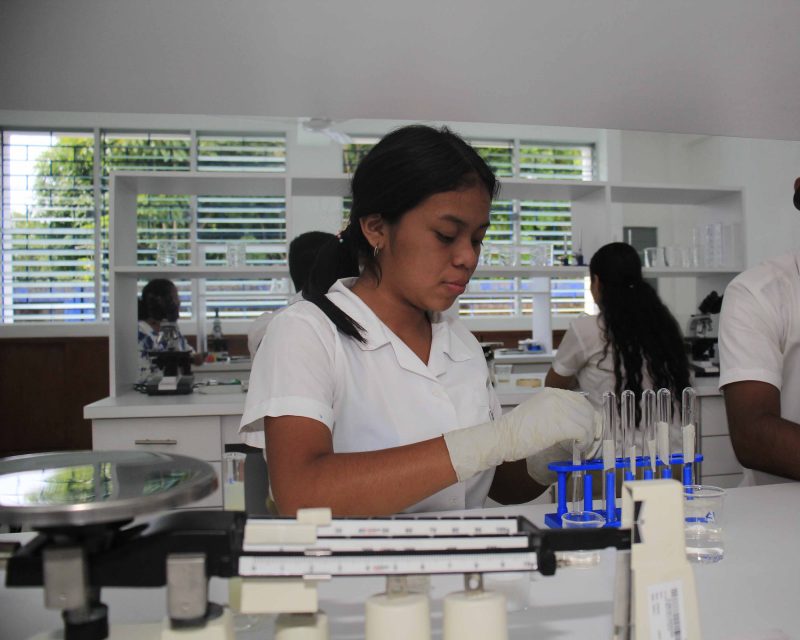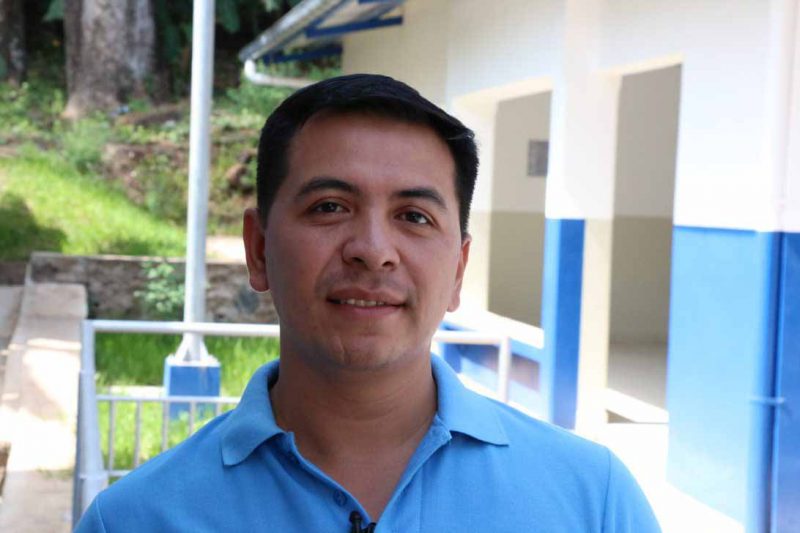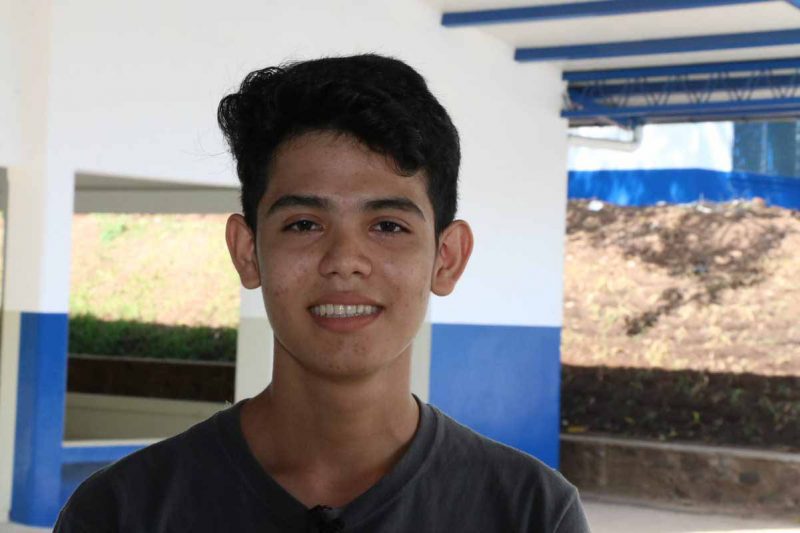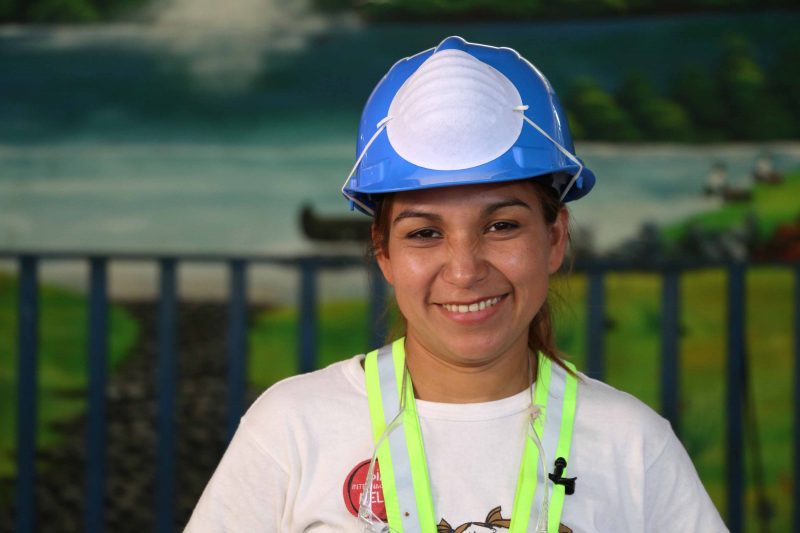
Laura Jazmín Gonzáles, a student at the Pablo Soriano Urquilla school in El Salvador, engages in hands-on learning in the new science lab funded through the MCC-El Salvador Investment Compact.
Science teacher Pedro Castellanos’ wish for his students goes beyond learning just facts and formulas. “My dream is that our young people have the opportunity to be inspired by science—to awaken in them the passion for scientific knowledge and research,” he says.
A few years ago, dreams like that may have seemed like a tall order at the José Simeón Cañas school in Chiltiupan, El Salvador, where Castellanos teaches. The school did not have a science lab and Castellanos had to improvise with whatever materials he could scrounge up. But under the MCC – El Salvador Investment Compact, that is changing.
Education and training are essential components of the compact, which has supported the construction of new schools and improved and rehabilitated others like the José Simeón Cañas school, which now boasts a new science lab.
“The biggest challenge is to inspire them, and now, with this space and the necessary equipment, I think this will make that much easier,” says Castellanos.

Pedro Castellanos, Science teacher at the José Simeón Cañas School in El Salvador.
Focused on grades 7 through 9, where student dropout rates are the highest, the compact provided participating schools with a full-time inclusive model that increased classroom time for students from 25 hours to up to 40 hours a week, bringing the education system in line with standards in Upper-Middle and Upper-Income countries. Teachers also received training in core subjects and pedagogical skills in an institutional and physical environment that is conducive to learning. Additionally, both teachers and students underwent training to increase gender equality in the classrooms and schools.
To prepare young Salvadorans to succeed when they enter the job market, the compact included a host of new technical degree programs. Those technical degrees ranged from training in fields like plumbing to tourism, a potentially burgeoning industry in El Salvador.
“When I came to ask about the new technical degree program, they told me that it was a degree that aligned with the expectations of the job market in this area,” said Erik Calderón López. López, who lives near El Salvador’s scenic coast, enrolled in a program geared towards the tourism industry.

Erik Calderón López enrolled in a technical degree program at the José Simeón Cañas School.
Ada Margarita Murcia enrolled in a masonry training course supported by the compact. “Because I look small and thin, people didn’t believe I could do it. So, I said ‘I am going to try, and I believe I can,’” said Murcia.

Ada Margarita Murcia, masonry trainee.
The MCC–El Salvador Investment Compact was designed to improve the country’s investment climate, strengthen its transportation infrastructure, and create improved employment opportunities to promote economic growth and a brighter future for the people of El Salvador.
The compact has invested in highways, border infrastructure, policy reforms that ease the cost of doing business, and educational infrastructure and pedagogy. But the most important MCC investment is in El Salvador’s greatest resource—its people.

